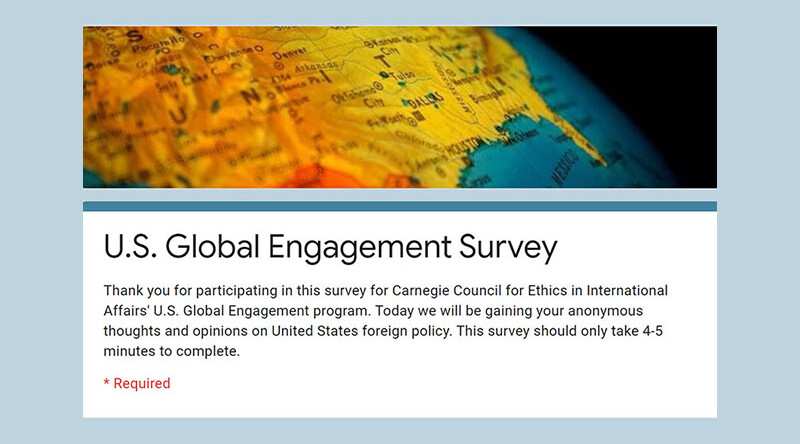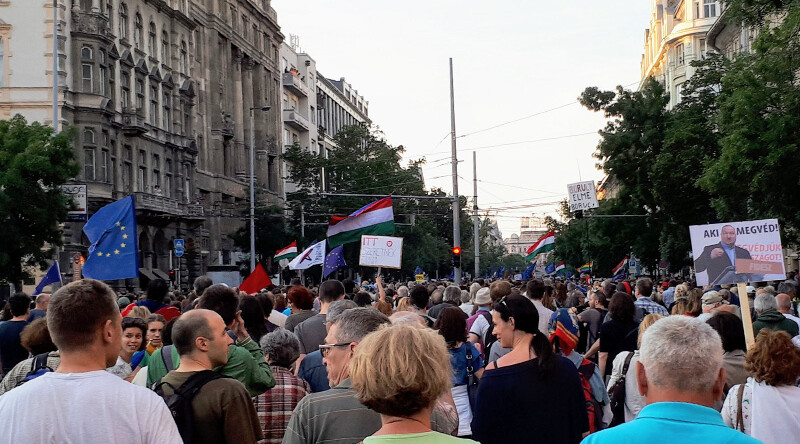This article first appeared on the Ethics & International Affairs blog.
In the wake of the Hungarian parliament's vote to allow the executive to rule by decree, Fred Kaplan argues that it is time to consider expelling Hungary from the North Atlantic Treaty Organization on the grounds that the country no longer upholds the liberal-democratic values that should form the basis of the security association. He writes:
The North Atlantic Treaty Organization is principally a security alliance, originally joining the United States and the Western European powers to deter and fend off an attack by the Soviet Union. However, Article 2 of the 1949 Washington Treaty—which created NATO—states that the members "will contribute toward the further development of peaceful and friendly international relations by strengthening their free institutions."
Moreover, the treaty's Membership Action Plan—signed in 1999, as several central and Eastern European countries (including Hungary) petitioned to join NATO—stated the point much more firmly and set forth some rules, which Orbán is now breaking.
This is an interesting argument. There have been calls in the past for suspending the alliance rights of members who do not undertake actions under Article III to take all necessary measures for self-defense, interpreted to mean spending enough on defense to meet alliance needs. Kaplan is arguing for invoking Article II to make a values judgment on the worthiness of Hungary to be part of the Western alliance, and this joins existing calls for re-evaluating Turkey's membership in NATO as well.
Leaving aside the question as to whether Hungary or Turkey have ceased to be liberal democracies, this discussion again raises the question about what priority shared values ought to have in a country's associations. Hungary and Turkey occupy important strategic real estate and Turkey has one of the largest military establishments in the alliance. And, of course, illiberal but anti-Communist governments were welcome in the alliance during the Cold War.
Americans themselves are divided on the question of how to prioritize values in the conduct of U.S. foreign policy, particularly if partners who do not always share values are important in concrete economic, political, or military ways to the security of the U.S. There has been some wishcasting, in recent years, to assume that partners and allies of the U.S. are both indispensable but also share the same assumptions about liberalism and democracy—and to downplay signs of a divide on values. However, this question now sits at the heart of the future of the NATO alliance. As I myself noted:
If NATO, on the other hand, remains committed to promoting and strengthening democratic values, the alliance will instead have to develop procedures to impose penalties on members who do not live up to these standards. To be meaningful, these penalties will probably have to include suspension of a country's Article V guarantees or even expulsion from the alliance.
How far can a democracy go in terms of suspending democratic procedures or invoking emergency rule before the fundamentals are eroded? Because in the European context this can be difficult to discuss, given the clear pathways taken by Benito Mussolini and Adolf Hitler, perhaps the experience of India in the 1970s might be indicative. Like Orbán, Indira Gandhi accumulated several votes in the Lok Sabha giving her various emergency powers—and when she faced the possibility of removal from parliament on election-related charges, she went ahead and used those powers to suspend democratic process itself. She hoped to stop the shift towards her opposition and in fact lifted the Emergency in 1977 assuming that she could prevail yet again at the ballot box—but lost her seat and led her party to near-annihilation at the polls.
Did the democratic process ultimately work to check and rein in Gandhi, or did democracy die and it had to be revived? If Orbán (and to some extent Recep Tayyip Erdoğan of Turkey) is following the Gandhi approach to politics, is this a tactical approach which may raise hackles elsewhere in the West but does not fundamentally change Hungary's "liberal democratic" choice, or should Hungary be suspended from the alliance? This is no longer an abstract discussion for the academic common room, but something every policymaker and politician who has declared that there is no gap between "our interests and our values" has to address.




